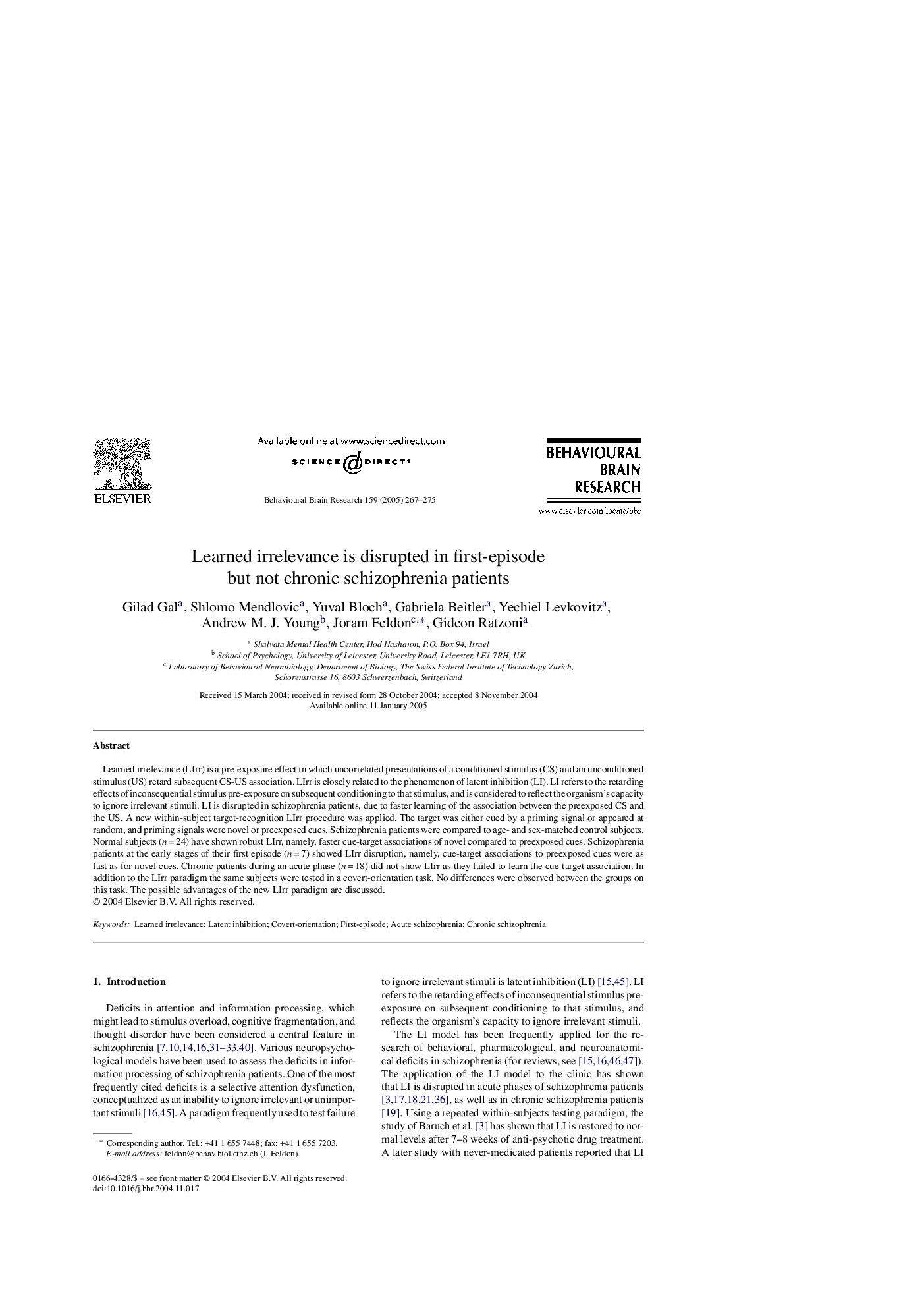| کد مقاله | کد نشریه | سال انتشار | مقاله انگلیسی | نسخه تمام متن |
|---|---|---|---|---|
| 9406566 | 1290129 | 2005 | 9 صفحه PDF | دانلود رایگان |
عنوان انگلیسی مقاله ISI
Learned irrelevance is disrupted in first-episode but not chronic schizophrenia patients
دانلود مقاله + سفارش ترجمه
دانلود مقاله ISI انگلیسی
رایگان برای ایرانیان
کلمات کلیدی
موضوعات مرتبط
علوم زیستی و بیوفناوری
علم عصب شناسی
علوم اعصاب رفتاری
پیش نمایش صفحه اول مقاله

چکیده انگلیسی
Learned irrelevance (LIrr) is a pre-exposure effect in which uncorrelated presentations of a conditioned stimulus (CS) and an unconditioned stimulus (US) retard subsequent CS-US association. LIrr is closely related to the phenomenon of latent inhibition (LI). LI refers to the retarding effects of inconsequential stimulus pre-exposure on subsequent conditioning to that stimulus, and is considered to reflect the organism's capacity to ignore irrelevant stimuli. LI is disrupted in schizophrenia patients, due to faster learning of the association between the preexposed CS and the US. A new within-subject target-recognition LIrr procedure was applied. The target was either cued by a priming signal or appeared at random, and priming signals were novel or preexposed cues. Schizophrenia patients were compared to age- and sex-matched control subjects. Normal subjects (n = 24) have shown robust LIrr, namely, faster cue-target associations of novel compared to preexposed cues. Schizophrenia patients at the early stages of their first episode (n = 7) showed LIrr disruption, namely, cue-target associations to preexposed cues were as fast as for novel cues. Chronic patients during an acute phase (n = 18) did not show LIrr as they failed to learn the cue-target association. In addition to the LIrr paradigm the same subjects were tested in a covert-orientation task. No differences were observed between the groups on this task. The possible advantages of the new LIrr paradigm are discussed.
ناشر
Database: Elsevier - ScienceDirect (ساینس دایرکت)
Journal: Behavioural Brain Research - Volume 159, Issue 2, 30 April 2005, Pages 267-275
Journal: Behavioural Brain Research - Volume 159, Issue 2, 30 April 2005, Pages 267-275
نویسندگان
Gilad Gal, Shlomo Mendlovic, Yuval Bloch, Gabriela Beitler, Yechiel Levkovitz, Andrew M. J. Young, Joram Feldon, Gideon Ratzoni,